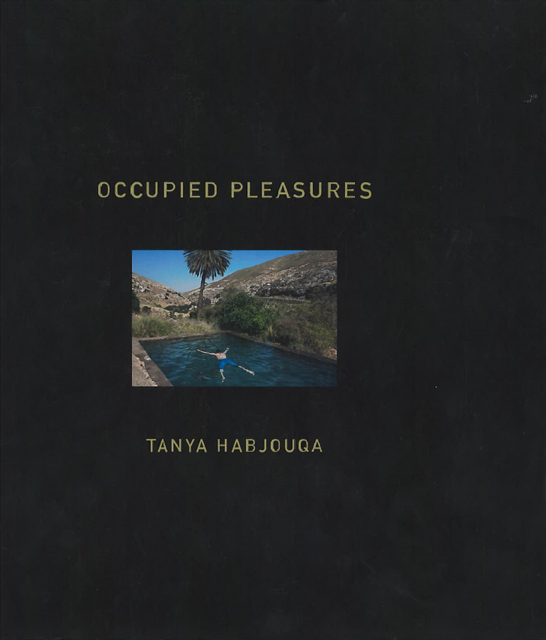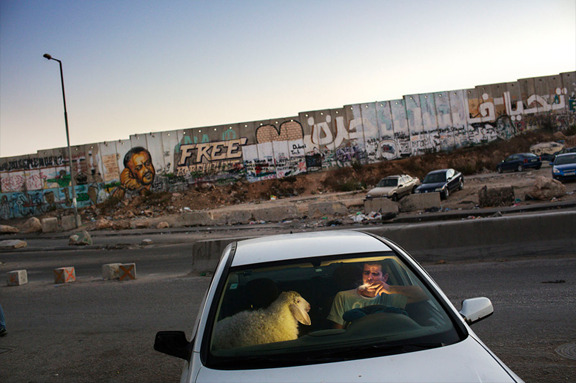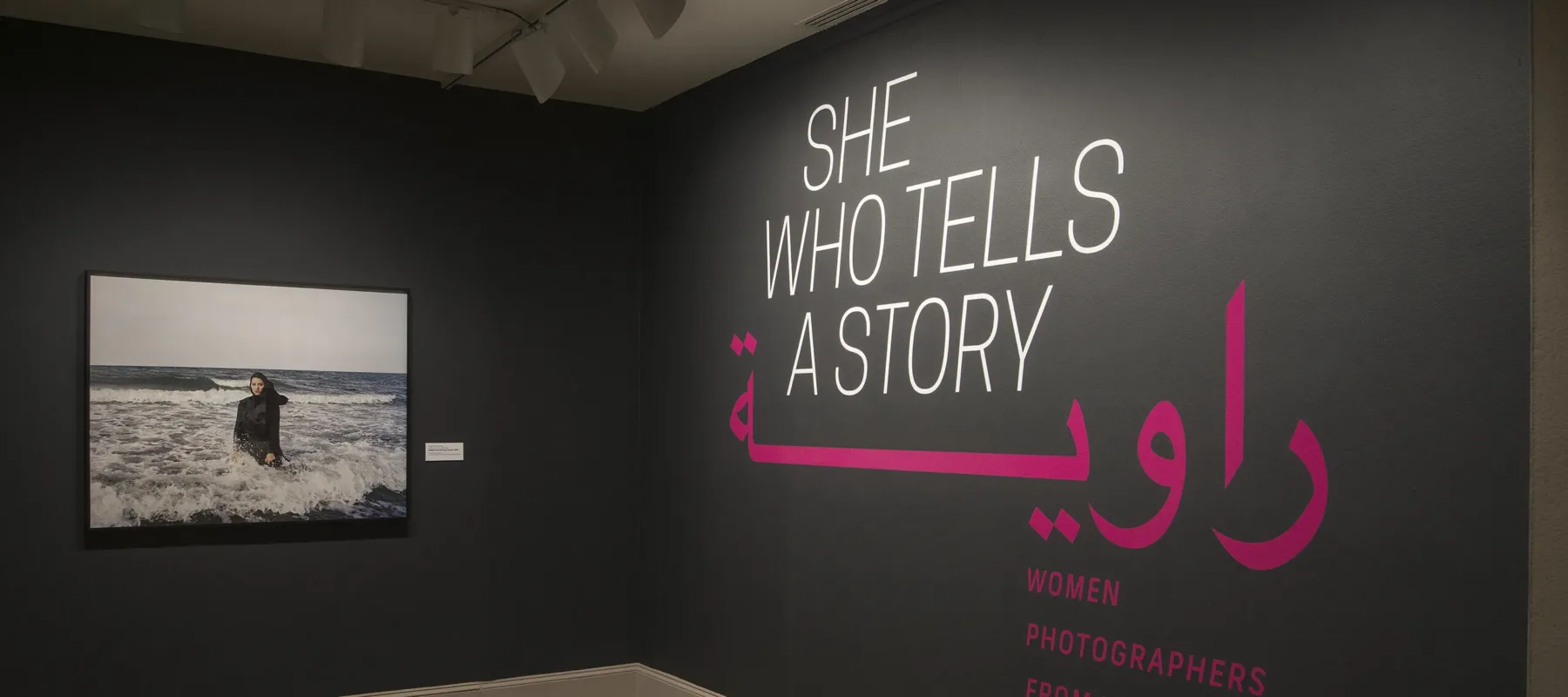The next time you visit NMWA, come to the Betty Boyd Dettre Library and Research Center to see new books on women in the arts, as well as reference books, artists’ books, and more. Meet Tanya Habjouqa at the museum on Wednesday, July 27 for a special in-gallery program.

Occupied Pleasures
Tanya Habjouqa
(FotoEvidence, 2015)
Jordanian photographer Tanya Habjouqa reveals the agonizing and absurd instants of occupied Palestinian life in Occupied Pleasures. In the foreword, poet Nathalie Handal describes the book as “a collection of stories captured in images, images like Palestinian lives lived in instants only.” Habjouqa’s photographs portray joyous moments of daily life, a family picnics together, women dance, and children swim, that are surrounded by dark circumstances. The occupation is obvious in these images: the menacing security wall looms in the background, a man sits at a checkpoint, a woman holding a bouquet wanders through the tunnel between Gaza and Egypt to a forbidden wedding.
Habjouqa’s work has been exhibited and published worldwide, and six of her photographs are currently on view at NMWA in She Who Tells a Story. She currently works from East Jerusalem on projects concerning identity politics and subcultures of the Levant. Habjouqa is also a founding member of the Rawiya photo collective, a group of women photographers from the Middle East who challenge stereotypes and support fellow women photographers in the region.
Occupied Pleasures contains a combination of photojournalism and imagery illustrating everyday Palestinian life, which Laleh Khalili refers to in the book’s introduction as “evanescent moments.” This body of work offers a nuanced perspective. Khalili writes, “It brings together the indisputable condition of their lives, occupation, violence, surveillance, and shows us that even within the confines of normalised atrocity, the spirit effervesces.”

In one captivating photograph, a man smokes a cigarette in his car outside of a checkpoint, with a sheep in the passenger seat of his car. “Detention juxtaposed against a moment of respite illuminates the extremities of the Palestinian narrative: celebration and mourning, respite and struggle, and the pleasure of smoking a cigarette,” writes Khalili. Through this collection of photos, Habjouqa exposes moments of levity to give the viewer a window into the humanity of the Palestinian people.
Meet artist Tanya Habjouqa at the museum for an in-gallery conversation on Wednesday, July 27. Reserve your spot on NMWA’s website.
All are welcome to look at this catalogue, which is available in the Betty Boyd Dettre Library and Research Center at the National Museum of Women in the Arts. If you’re touring the museum, the library is open to the public Monday–Friday, 10 a.m.–12 p.m. and 1–5 p.m.
